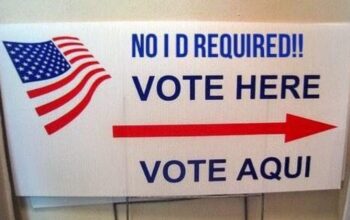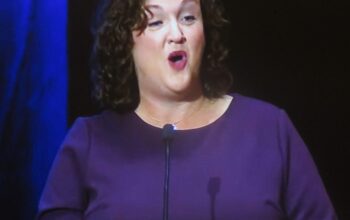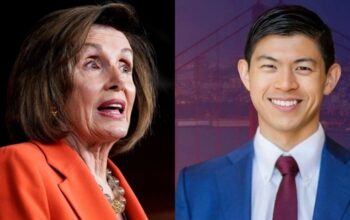We already allow the dead to vote in California. The Secretary of State allows illegal aliens and those who moved out of State ten years ago to vote, so these changes by the Democrats are no surprise. The bottom line to the change is simple. Make it make difficult to find the corruption in the voting system. Hide it. Call those who want to expose it conspiracy theorists and claim their desire for data is “fraud”.
“Withholding Voter Data Deemed Requested for “Unlawful, False,
Fraudulent, or Illegitimate” Purposes
Proposed Reg. 19004(c) asserts vast discretion to refuse to provide
voter registration information based on the SecState’s “reasonable
belief” that: “it is being requested for an unlawful, false, or
fraudulent purpose, to promote or conduct an illegitimate object or
purpose, or is being requested or submitted in bad faith or for the
purpose of harassing or defrauding a person or entity.” False,
fraudulent, illegitimate, and bad faith are unduly subjective
criteria. This provision could be abused against candidates who
challenge conventional wisdom about any policy issue, as well as
election integrity advocates who doubt that voting by mail is “safe
and secure”.
They can consider asking for voting roll data an illegitimate use, forcing you to go to court to get the information. Only in dictatorships—or California is this possible.
Hello Election Integrity Colleagues, Journalists and Academics,

Ellen Swensen, EIPCa, 1/6/21
While everyone is focused on the post-election turmoil, the California
Secretary of State has proposed regulations that would restrict access
to voter registration data and further constrain the use of such data.
EIPCa, as a prominent analyst of California voter registration data,
will be commenting in writing and participating in the upcoming public
hearing. Your input or comments would be welcome to support access to
voter registration data.
Please see details below. The more voices involved, the better our
chances
of stopping or altering these proposed regulations!
Ellen Swensen
EIPCa Chief Analyst
Comments must be received by the Secretary of State at its office by
Monday, January 11, 2021. Comments can be e-mailed, or delivered by
express mail, to:
Robbie Anderson
Secretary of State’s Office, 1500 11th St 5th Floor, Sacramento, CA
95814
[note that his/her email address does actually omit the “n” from the end
of the last name.]
The public hearing is on WebEx at 10:30 am on Monday, January 11,
2021. See this link for the login information.
The regulations, with the notice of proposed regulatory action and the
Statement of Reasons, can be retrieved at the bottom of this page
Based on our analysis so far, here are the worst provisions that
restrict access to voter data and hinder its use.
1. Withholding Voter Data Deemed Requested for “Unlawful, False,
Fraudulent, or Illegitimate” Purposes
Proposed Reg. 19004(c) asserts vast discretion to refuse to provide
voter registration information based on the SecState’s “reasonable
belief” that: “it is being requested for an unlawful, false, or
fraudulent purpose, to promote or conduct an illegitimate object or
purpose, or is being requested or submitted in bad faith or for the
purpose of harassing or defrauding a person or entity.” False,
fraudulent, illegitimate, and bad faith are unduly subjective
criteria. This provision could be abused against candidates who
challenge conventional wisdom about any policy issue, as well as
election integrity advocates who doubt that voting by mail is “safe
and secure”.
2. Hindering Receipt of Data by Another Government Agency
Current Reg 19003(j) includes among permissible uses “Any official use
by any local, state, or federal governmental agency.” Proposed Reg
19003(a)(5) concerning permitted uses does include similar language in
(a)(5)(C); but the introductory language to (a)(5) is unclear and
ungrammatical:
“Governmental: Any request from a governmental agency or for a use
related to a governmental function by means including, but not limited
to: “
This provision could be read to limit government agencies to
requesting voter registration data directly from the SecState.
3. Narrowing of Scholarly Purpose for Requesting Data; “Investigation”
Purpose
EIPCa has been requesting data under the category of Scholarly
Purpose. This purpose has been narrowed to academe by Proposed Reg.
19003(a)(2) “Scholarly: students working on theses, professors
researching voting patterns, and other academics involved in research
related to political and election activities. ” Without explanation in
the Statement of Reasons, Proposed Reg. 19003(a)(6) creates a new
permissible purpose: “Investigation: For any person to conduct an
audit of voter registration lists for the purpose of detecting voter
registration fraud.” This language does resemble Current Reg 19003(h)
listing permissible uses. However, Investigation is not one of the
statutory types of permissible purposes in EC 2194(a)(3). The basis
for this new purpose should be well-defined.
4. Stringent IT Security Requirements.
Elections Code 2188.2 does authorize the SecState to “adopt
regulations that describe the best practices for storage and security
of voter registration information received by an applicant pursuant to
Section 2188. ” Proposed Reg 19012 sets forth detailed requirements
for regular users, and also for vendors. The Statement of Reasons
refers to Federal definitions of election data as critical
infrastructure. The Notice cites several official publications, mainly
from the Federal Election Assistance Commission, that specify cyber
security measures for critical infrastructure.
That standard is inappropriate and excessive for copies of voter
registration data in the hands of journalists, scholars, or
investigators. Such snapshots of data are not infrastructure, because
they are not being used by election officials to conduct elections.



